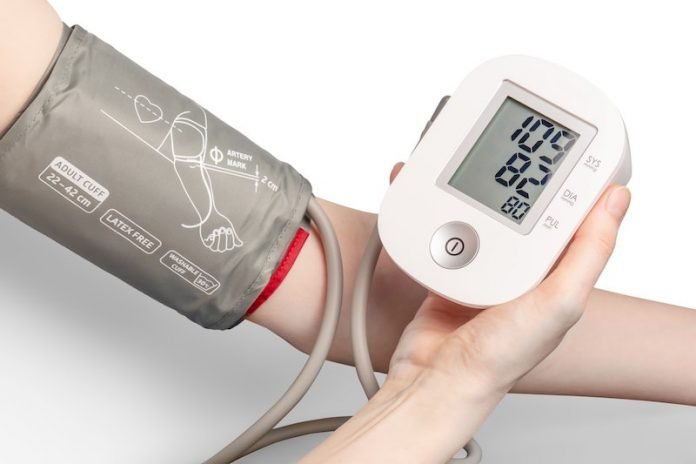
Blood pressure is the force manifested by circulating blood against the walls of the body’s arteries, the major blood vessels in the body. Hypertension is when blood pressure is too high.
Blood pressure is written as two numbers. The first (systolic) number represents the pressure in blood vessels when the heart contracts or beats.
The second (diastolic) number represents the pressure in the vessels when the heart rests between beats.
In a recent study published in Diabetes Care, researchers found that systolic blood pressure above 120 mmHg increases the risk of heart disease.
One author of the study is Dr. Mayuko Harada Yamada.
Worldwide, high blood pressure is a common and strong risk factor for the development of heart disease.
The 2017 American College of Cardiology (ACC)/American Heart Association (AHA) BP guideline defined blood pressure >130/80 mm Hg as hypertension.
This guideline showed that the normal level is less than 120/80 mm Hg and SBP 120-129 mm Hg and DBP<80 mm Hg is elevated BP.
However, little is known regarding whether elevated BP versus normal BP is specifically associated with a higher risk for coronary artery disease.
In the study, the team examined 805,992 people enrolled with a health insurance provider for company employees and their dependents in Japan.
They compared the incidence of coronary artery disease according to their blood pressure.
They found systolic blood pressure above 120 mmHg increases the rate of heart disease.
Furthermore, the investigators repeated similar analyses using the diastolic blood pressure and reported that the coronary artery disease and heart disease risk concurrently increased with higher DBP categories.
The findings suggest even if blood pressure levels are slightly higher than the normal level, it is essential to engage in lifestyle improvement, including salt reduction, from an early stage.
If you care about high blood pressure, please read studies about diet high in this nutrient may prevent high blood pressure and findings of this plant nutrient could strongly lower blood pressure.
For more information about blood pressure health, please see recent studies about worried about brain lesions and dementia? Check this blood pressure number and results showing that this new discovery may improve treatments of high blood pressure and dementia.
Copyright © 2021 Knowridge Science Report. All rights reserved.



